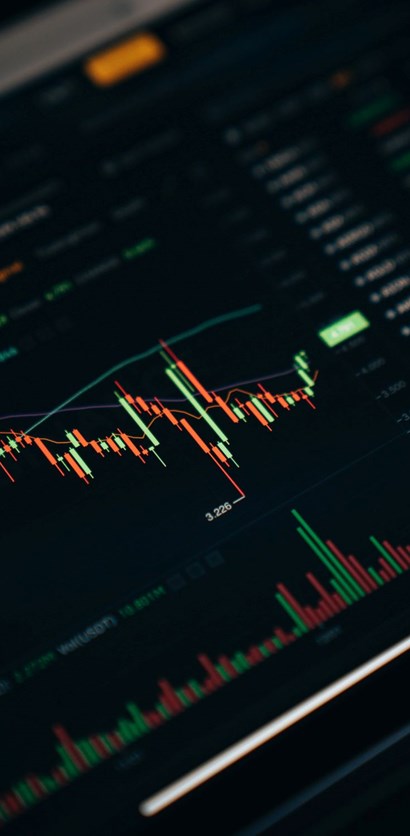Offering unlimited shelf space, unmatched price comparison and increasingly rapid delivery, online shopping offers consumers utility and choice that cannot be matched in a brick-and-mortar shopping environment, and all from the comfort of a consumer’s home, office or anywhere they take their, now, ubiquitous smart phones.
Given the inherent advantages of e-tailing it is no surprise that global retail ecommerce has grown +176% over the past 5 years and is forecast to grow an additional +50% in the next four years. However, while digital is the default for many consumers today, a significant portion of the population have only dipped their toes into online e-commerce.
The chart below shows the total size of the global retail ecommerce market, closing in on $5 trillion this year and expected to rise to $6.4 trillion by 2024. Also on the chart we show the penetration rate of ecommerce in total retail, i.e. the % of total retail sales which occur online. As you can see, even after very strong growth of ecommerce in 2020, the global penetration of retail ecommerce this year is only 19.5%

If we look at the US retail ecommerce market we see an even lower rate of penetration. Despite the US ecommerce market (the world’s second largest) expected to be worth $953 billion by 2022, penetration of ecommerce will only reach 16% of retail by next year. Again, this shows just how far we have to go before ecommerce becomes dominant.

One-third of the world’s population, 2.8 billion people, are still yet to even gain access to the internet. As these people are connected and other markets see ecommerce penetration rise, we will see retail ecommerce continue to grow for decades to come.
To see the future, we need only look to China today. Over the past decade China has undergone an economic and digital revolution, to the extent that its digital development now far exceeds that of developed countries like the US.
A newly wealthy and powerful middle class has emerged in China, sparking not just a revolution in consumption but, due to younger demographics, also how that consumption takes place. China has leapfrogged the traditional 20th century brick-and-mortar retail mode of consumption and gone straight to digital.
The chart below illustrates this and also shows where the rest of the world will eventually go to. Today in China, an incredible 52% of all retail shopping is done digitally and at nearly $2.8 trillion in market value, China is now the world’s largest ecommerce market.

And this story is only half told. By the end of the decade, retail ecommerce penetration in China will be 64%, while the market will have nearly doubled to $4.1 trillion in value.
There is no reason why, in the near future, given the rising population of Millennials and Gen-Z around the world, other countries will not come to resemble China in their online shopping habits.
Indeed, some developed markets such as the UK, with 31% ecommerce penetration, are already well on track to catch-up with China. The effect of reaching Chinese levels of ecommerce penetration would, in many cases, more than triple the existing ecommerce market size.
The global retail ecommerce trend still has a (very) long way to go!








